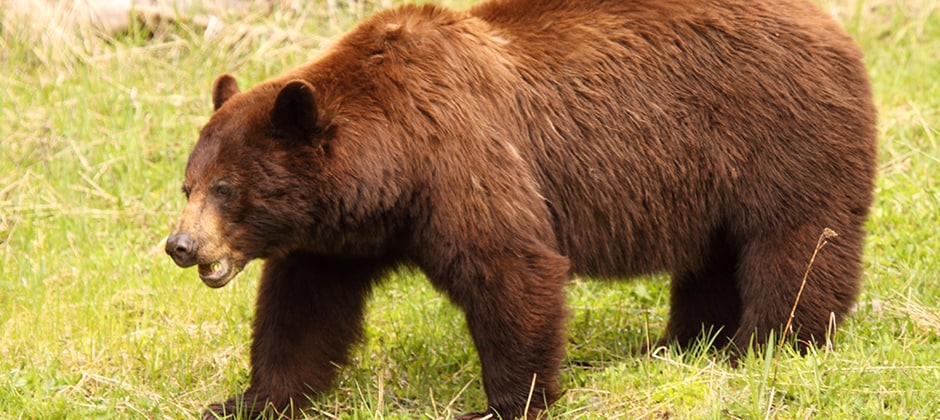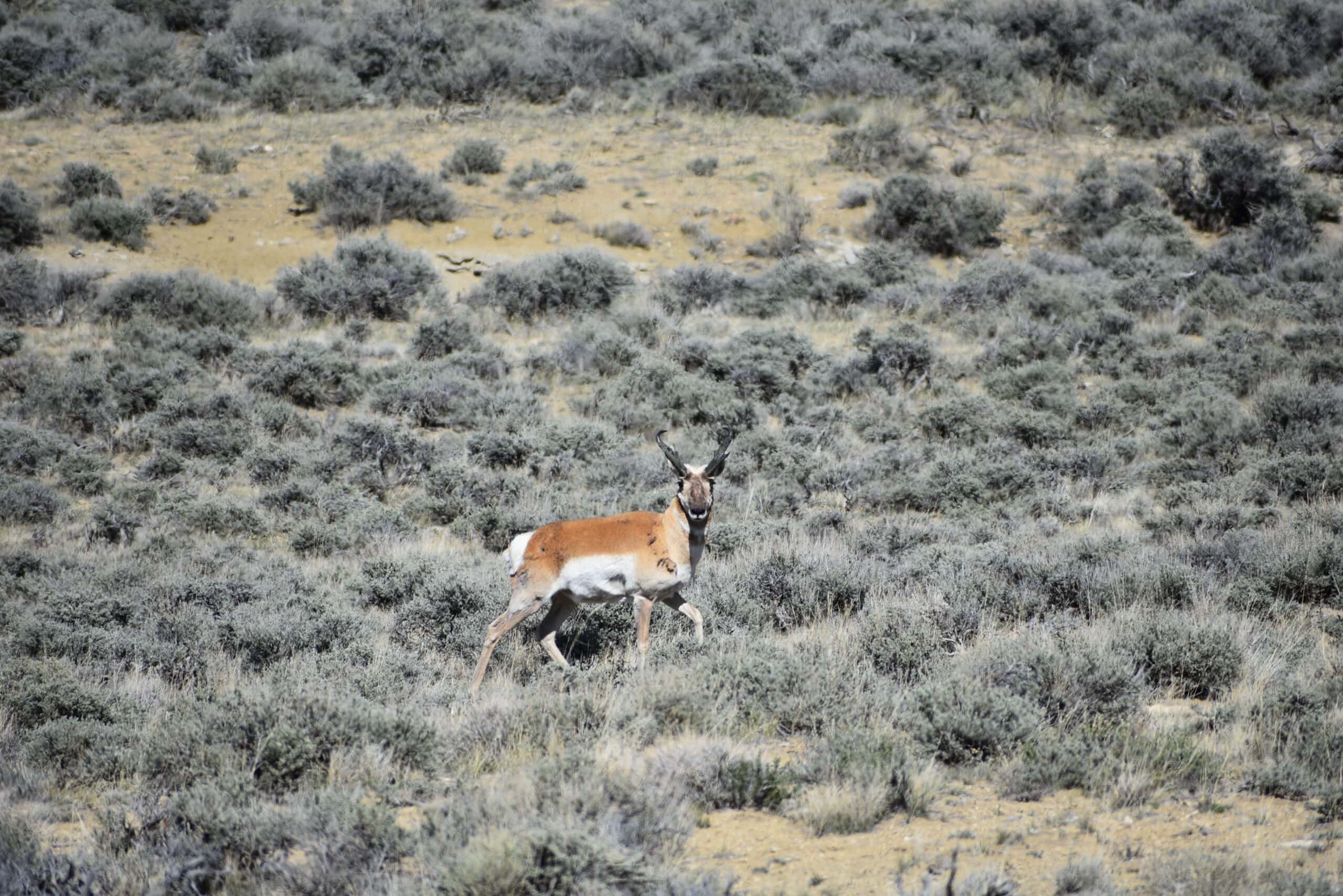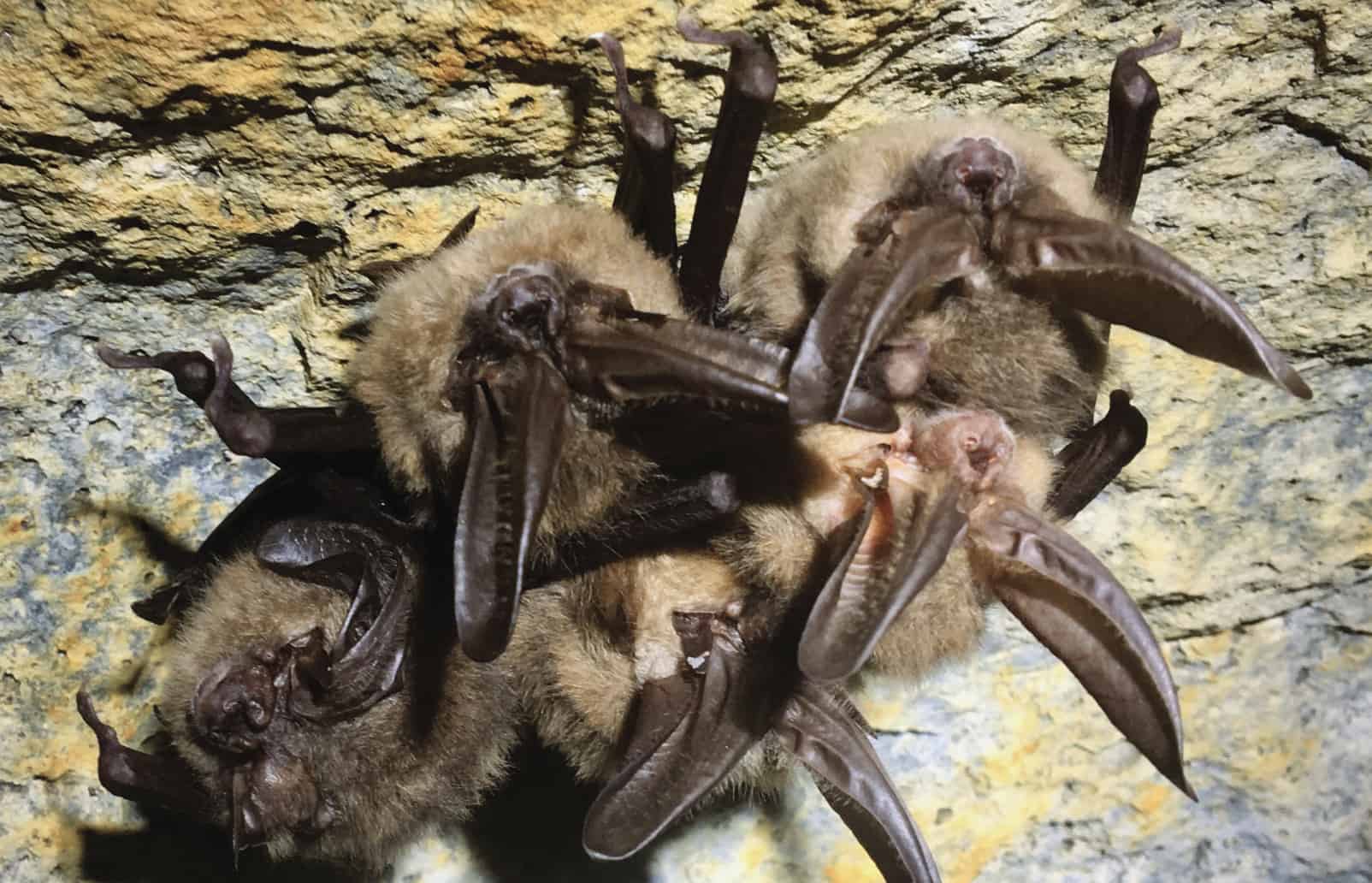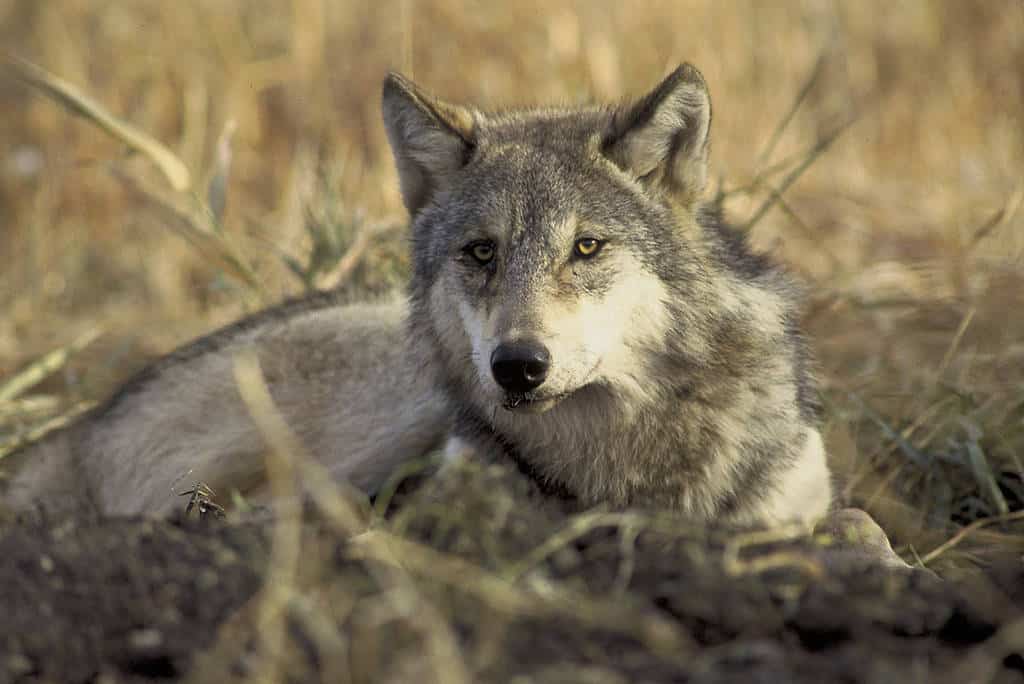Share this article
Translocating bears doesn’t reduce their survival
Translocating nuisance black bears doesn’t affect their survival, researchers found, giving support to the use of the technique to avoid conflicts with people.
“I think that it’s important to recognize that translocation can really be an effective management tool,” said Javan Bauder, who conducted this research as a postdoctoral research assistant with the Illinois Natural History Survey. “Just because you translocate nuisance individuals doesn’t mean they are going to have low survival rates.”
Bauder led a study published in Animal Conservation looking at a long-term dataset for black bears (Ursus americanus) in Wisconsin. His past research showed that translocating nuisance black bears resulted in fewer returning to the area and exhibiting the same behaviors. But he wondered how those same bears’ fared in their new areas.
The team looked back at 38 years of data on 1,233 marked and translocated nuisance black bears. They used the state’s mark-recapture data to estimate annual mortality rates from harvest and non-harvest reasons. The researchers then conducted a literature review to estimate bear survival rates for non-translocated individuals that aren’t nuisance bears, to act as a control group.
Bauder and his colleagues found that as nuisance bears were translocated farther away, they had higher survival rates when it came to harvest and non-harvest mortality. “We were surprised by that,” Bauder said. He figured moving them farther from the resources they knew would impact their survivability.
Translocated, nuisance bears’ survival was lower than that of other bears, but researchers found it was likely due to their behaviors, not their translocations. Nuisance bears’ survival rates were consistently lower than non-nuisance, non-translocated bears. “There’s inherent risk with nuisance behavior,” Bauder said. “They are in closer proximity to humans, human dwellings, closer proximity to roads and elevated mortality risk. They’re also susceptible to recreational harvest.”
“Our study suggests translocation is an effective way of mitigating human-bear conflict,” he said. “And doesn’t appear to be reducing the survival of the bears.” He also urged residents to reduce the attractants that can bring bears into conflict with people.
Header Image: Moving nuisance black bears doesn’t decrease their mortality, researchers found. Credit: Maximilian Allen








